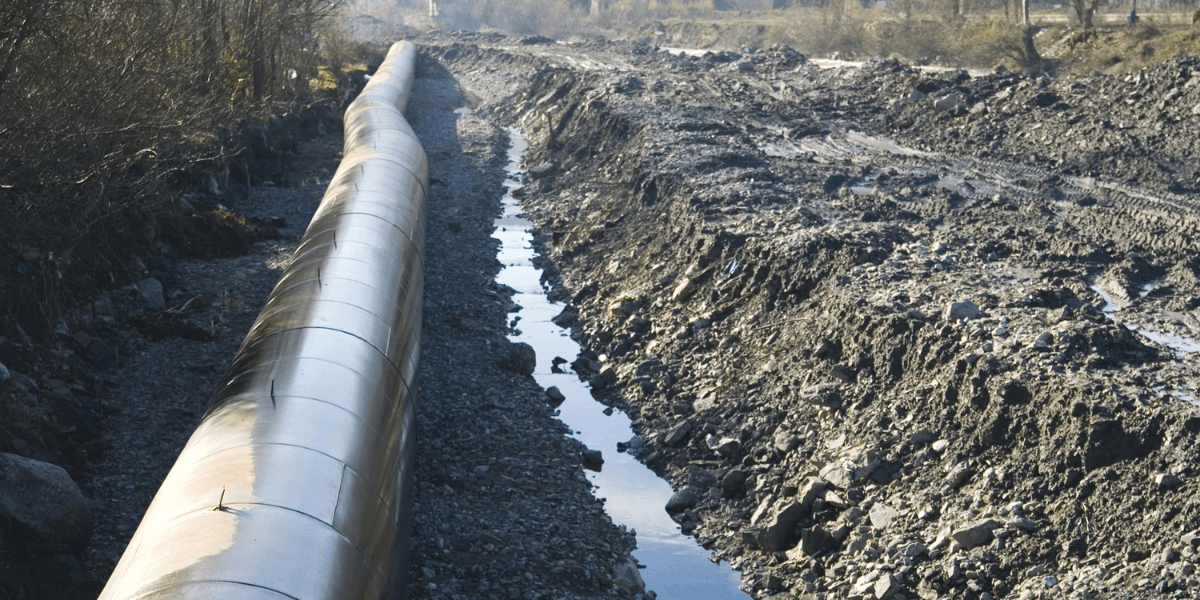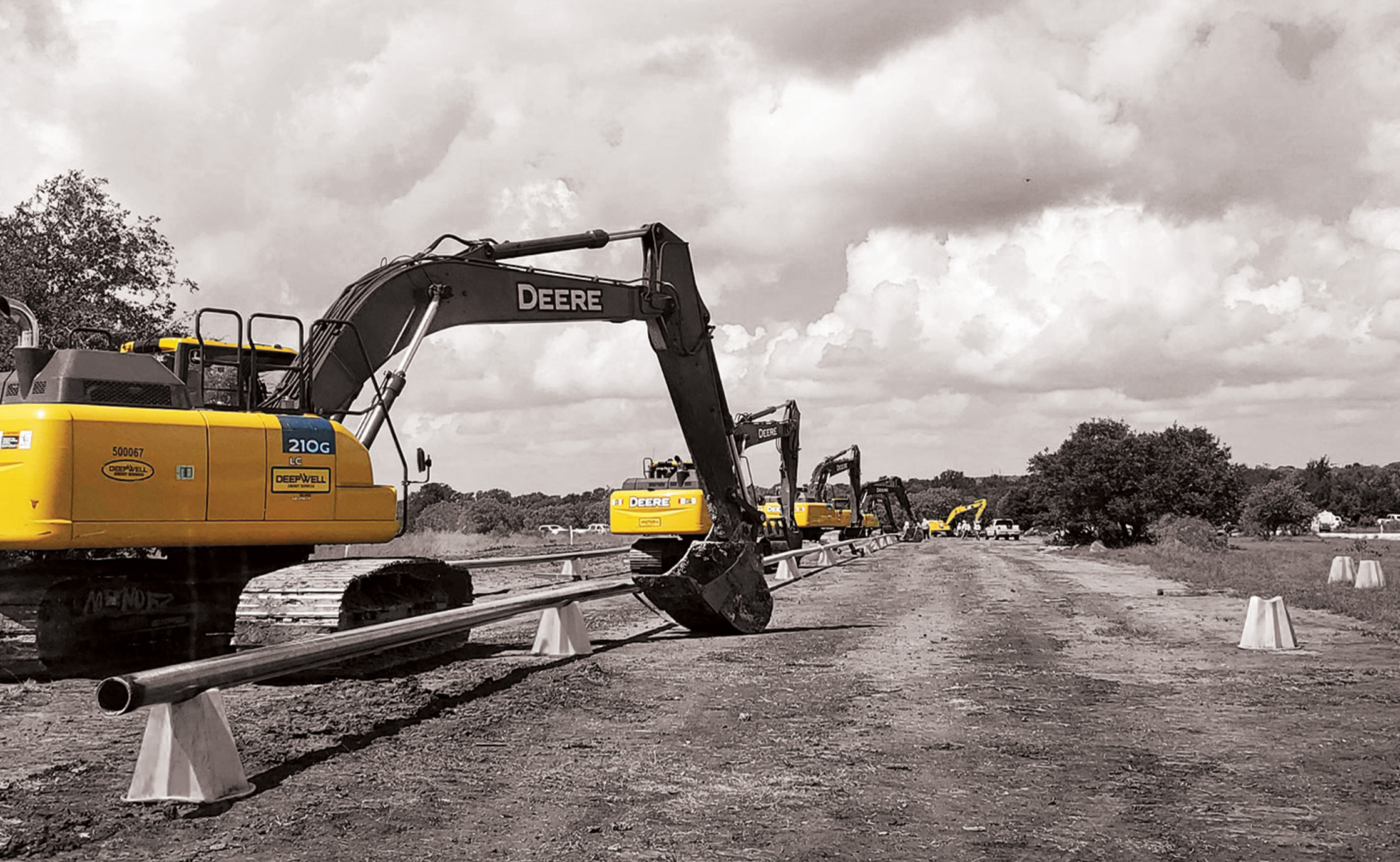Superior Rentals midland: local expertise for energy sector
Wiki Article
A Comprehensive Overview to the Different Kinds Of Oil Field Equipment and Pipeline Equipment Available
The oil and gas sector depends greatly on specialized tools for reliable removal and transport. Numerous sorts of equipment, from drilling rigs to storage containers, play important functions in this intricate process. Each item of devices offers distinct features that add to general operational success. Understanding these elements is essential for anybody included in the field. As the market progresses, so too do the modern technologies that sustain it. What improvements are on the horizon?
Drilling Rigs: The Foundation of Oil Exploration
Drilling rigs serve as the important equipment in the domain name of oil exploration, making it possible for business to accessibility hydrocarbon books buried deep beneath the Planet's surface area. These rigs can be found in numerous kinds, including land rigs, offshore rigs, and mobile systems, each made to run in certain environments. Furnished with sophisticated modern technology, piercing rigs can permeate geological formations with precision, ensuring effective source removal. The structural honesty and operational capabilities of these rigs are critical, as they should hold up against severe problems and considerable pressures. The selection of a boring gear influences the total project expense and timeline, making it a vital factor to consider for oil companies looking for to maximize their exploration efforts and make the most of efficiency in their procedures.Pumps: Important for Liquid Movement
In the oil removal process, the function of pumps is considerable, facilitating the movement of fluids throughout various phases of production. Pumps are necessary for transporting petroleum, water, and other liquids from below ground tanks to the surface and afterwards through pipelines to refineries. They are available in numerous types, including centrifugal, favorable variation, and completely submersible pumps, each serving certain functions based upon the liquid attributes and functional needs. Centrifugal pumps are generally utilized for their performance in high-flow applications, while favorable variation pumps excel in taking care of thick liquids. The option of pump effects overall efficiency, functional safety, and maintenance expenses. Proper choice and upkeep of pumps are essential for optimizing manufacturing and reducing downtime in oil field procedures.Shutoffs: Controlling Circulation and Pressure

Valves play an important role in taking care of the flow and pressure of liquids within oil areas and pipes. Various sorts of valves offer unique applications, each created to satisfy specific features basic for effective procedure - Superior Rentals fusion machines. Comprehending the features and usages of these shutoffs is vital for enhancing system performance and security
Sorts of Valves
Crucial components in oil field procedures, shutoffs play an important role in controlling the circulation and pressure of fluids within pipelines and devices. Numerous types of valves are made use of to satisfy the diverse needs of oil and gas manufacturing. Usual types consist of entrance shutoffs, which provide a straight-line flow and very little pressure drop; world valves, understood for their strangling capabilities; and ball shutoffs, acknowledged for their fast on/off control. In addition, check shutoffs stop backflow, while butterfly shutoffs offer a lightweight remedy for managing circulation. Each valve kind is created with particular materials and arrangements to endure the rough conditions often discovered in oil areas, guaranteeing reliability and efficiency in procedures. Recognizing these types is important for reliable system administration.Valve Applications and Functions
While different sorts of valves serve distinctive purposes, their primary applications focus on managing circulation and stress within oil and gas systems. Shutoffs such as gateway, globe, and sphere shutoffs manage fluid movement, making sure peak efficiency and security. Gate valves are generally utilized for on/off control, supplying marginal circulation resistance. World shutoffs, on the other hand, offer specific flow policy, making them ideal for strangling applications. Round shutoffs are preferred for their fast operation and tight sealing capacities. On top of that, stress relief shutoffs are crucial for protecting against system overpressure, safeguarding devices stability. In general, the appropriate choice and application of shutoffs enhance functional efficiency, ensuring the reliable transport of oil and gas via pipes and handling centers.Compressors: Enhancing Gas Transportation
Compressors play a vital role in the effective transportation of gas, making certain that it relocates efficiently through pipes over fars away. These gadgets boost the pressure of all-natural sewer line cleaning services near me gas, permitting it to get over rubbing and altitude changes within the pipeline system. Furthermore, compressors promote the balancing of supply and demand, fitting changes in usage and manufacturing rates. Numerous kinds of compressors are used in the industry, consisting of centrifugal, reciprocating, and rotary screw compressors, each offering distinct advantages based upon the operational demands. Normal upkeep of these compressors is vital to take full advantage of effectiveness and lessen downtime, ultimately adding to a reliable gas transportation network. Their critical function highlights the relevance of compressors in the general oil and gas infrastructure.Storage Tanks: Safe and Efficient Fluid Monitoring
Efficient transport of all-natural gas counts on various supporting systems, among which is the correct monitoring of tank. These containers play a necessary role in safely consisting of liquids, ensuring that operational performance is kept while lessening ecological dangers. Created from resilient products, they are created to endure high stress and corrosive aspects. Effectively sized and tactically situated, tank facilitate the smooth circulation of gas and other fluids, avoiding bottlenecks in supply chains. Normal upkeep and monitoring are vital to identify leaks or architectural concerns, promoting security and conformity with governing criteria. Ultimately, the efficient administration of storage tanks is critical for the total integrity and integrity of the oil and gas market's liquid handling systems.
Pipeline Solutions: Framework for Transport
Pipeline systems work as the backbone of the oil and gas industry, assisting in the reliable transportation of hydrocarbons over vast ranges. These systems contain various elements, including Extra resources pipes, valves, pumps, and compressors, all thoroughly developed to assure seamless flow. The materials made use of in pipeline construction, commonly steel or high-density polyethylene, are selected for durability and resistance to deterioration. Pipeline networks can cover throughout land and water, attaching production websites to refineries and distribution. Additionally, advanced technology makes it possible for real-time monitoring of circulation prices and stress degrees, enhancing operational effectiveness. The calculated positioning of these pipelines reduces ecological impact while making the most of resource ease of access, therefore playing an essential function in conference power needs worldwide.Safety And Security Equipment: Making Sure Employee and Environmental Defense
The operation of pipeline systems, while vital for power transport, also presents significant security obstacles for workers and the environment. Safety devices plays a significant duty in minimizing these risks. Individual protective devices (PPE) such as helmets, gloves, and non-slip shoes safeguards employees from physical dangers. Furthermore, gas discovery systems check for leakages, making certain that dangerous compounds do not posture a threat to workers or the surrounding ecological internet community. Emergency closure systems are imperative for quickly stopping procedures during a crisis, preventing potential calamities. Spill containment materials, consisting of absorbents and obstacles, are basic for decreasing ecological influence. On the whole, purchasing all-encompassing safety and security equipment is critical for keeping operational stability and shielding both employees and the environment in the oil and gas sector.
Frequently Asked Questions
Exactly how Do I Choose the Right Oil Field Equipment for My Project?
Choosing the ideal oil area equipment entails examining task specifications, budget plan restrictions, and functional demands. Take into consideration variables such as devices reliability, compatibility with existing systems, and the distributor's reputation to ensure peak efficiency and safety and security.What Are the Maintenance Demands for Oil Field Equipment?
Upkeep needs for oil field equipment include normal inspections, lubrication, and prompt repair services. Operators ought to additionally stick to supplier standards, display performance metrics, and guarantee compliance with safety and security guidelines to boost long life and effectiveness.
Exactly How Can I Ensure Conformity With Environmental Rules?
To assure conformity with environmental policies, business must perform routine audits, execute ideal practices, spend in training, keep correct documents, and remain upgraded on regulation (Superior Rentals fusion machines). Cooperation with environmental companies can also improve adherence to regulationsWhat Is the Average Life-span of Pipeline Equipment?
The average lifespan of pipeline equipment normally ranges from 20 to half a century, relying on factors such as worldly high quality, ecological conditions, and upkeep practices. Routine inspections can greatly influence durability and operational efficiency.Just how Do I Securely Carry Oil Field Equipment to Remote Locations?
Delivering oil area devices to remote places requires mindful preparation, including route analysis, securing licenses, making use of proper vehicles, and guaranteeing security protocols are adhered to. Appropriate training and interaction among crews are necessary for effective transportation.Report this wiki page